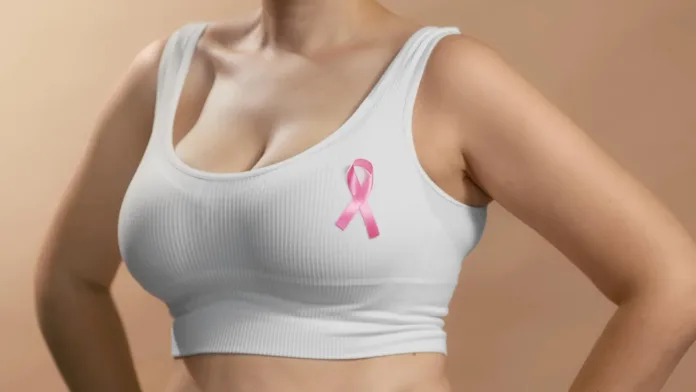New research reveals an alarming rise in breast cancer among younger women—what’s driving this crisis?
A disturbing rise in breast cancer diagnoses among younger women has experts scrambling for answers. New research from Washington University School of Medicine reveals a sharp increase in cases among women under 50, with the rates accelerating in recent years. While the overall incidence of breast cancer has increased, the surge in younger women has raised alarms and sparked widespread concern.
The study, which tracked breast cancer diagnoses over the past two decades, shows a steady rise in cases for women aged 20 to 49. From 2000 to 2016, the rate of diagnoses increased by a modest 0.24% annually, reaching 66 cases per 100,000 women by 2016. However, after 2016, the trend took a startling turn. Between 2016 and 2019, diagnoses surged by a staggering 3.76% annually, pushing the rate to 74 cases per 100,000 women by 2019. This sudden spike has left researchers scrambling to pinpoint the causes behind this disturbing shift.
The study found that the rise is primarily driven by estrogen-receptor positive tumors, which are particularly dangerous for younger women. These tumors rely on the hormone estrogen to grow, and younger women tend to produce more estrogen. While the number of estrogen-receptor positive tumors has increased, the number of estrogen-receptor negative tumors has actually declined, suggesting a worrying shift in the type of breast cancer being diagnosed.
Embed from Getty ImagesDr. Adetunji T. Toriola, the senior author of the study, expressed concern over this alarming trend. “We need to understand what is causing this surge in estrogen-receptor positive tumors,” he said. “If we can identify the factors driving this increase, we may be able to develop targeted interventions to address it.” The rise in estrogen-receptor positive breast cancer cases highlights the pressing need for further research into prevention and early detection, particularly for younger women.
The study also revealed troubling racial disparities in breast cancer diagnoses. Black women, particularly those aged 20 to 29, face a 53% higher risk of developing breast cancer compared to white women. While the risk for Black women decreases in the 30 to 39 age range, it remains significantly elevated in the younger age groups. In contrast, Hispanic women have the lowest rates of breast cancer among all racial and ethnic groups. These disparities have prompted researchers to investigate the potential genetic and environmental factors that contribute to the increased risk among Black women.
The rise in breast cancer diagnoses has also been accompanied by an increase in early-stage cancer detections. The number of stage 1 breast cancers—those that are easier to treat—has risen, while cases of stage 2 and 3 cancers have decreased. This suggests that improved screening and awareness may be leading to earlier detection. However, some early-stage tumors are still being missed, only to be discovered later in more advanced stages, highlighting the need for more effective screening methods for younger women.
In response to this crisis, experts are calling for more focused research into the environmental, genetic, and lifestyle factors that may be contributing to the rising rates of breast cancer among younger women. Dr. Toriola and his team are particularly focused on the generational shift, noting that women born in 1990 are more than 20% more likely to develop breast cancer before the age of 40 compared to those born in 1955. This generational change underscores the urgent need for deeper investigation into the root causes of this troubling trend.
As breast cancer diagnoses among younger women continue to rise, experts are hopeful that further research will provide the insights needed to develop effective prevention strategies and improve early detection methods. The growing trend serves as a stark reminder of the need for greater awareness and investment in cancer research to address the alarming surge in cases.
